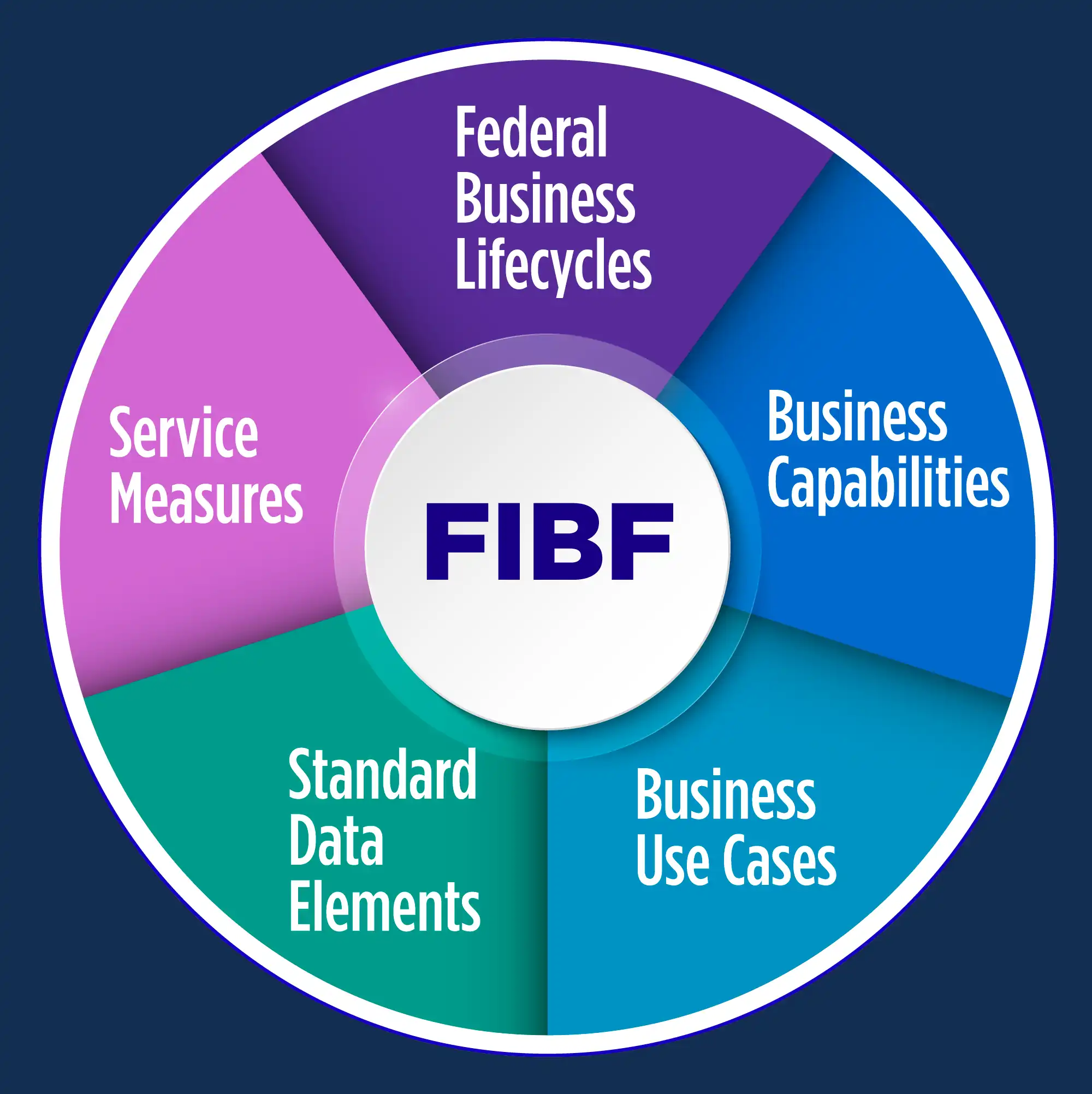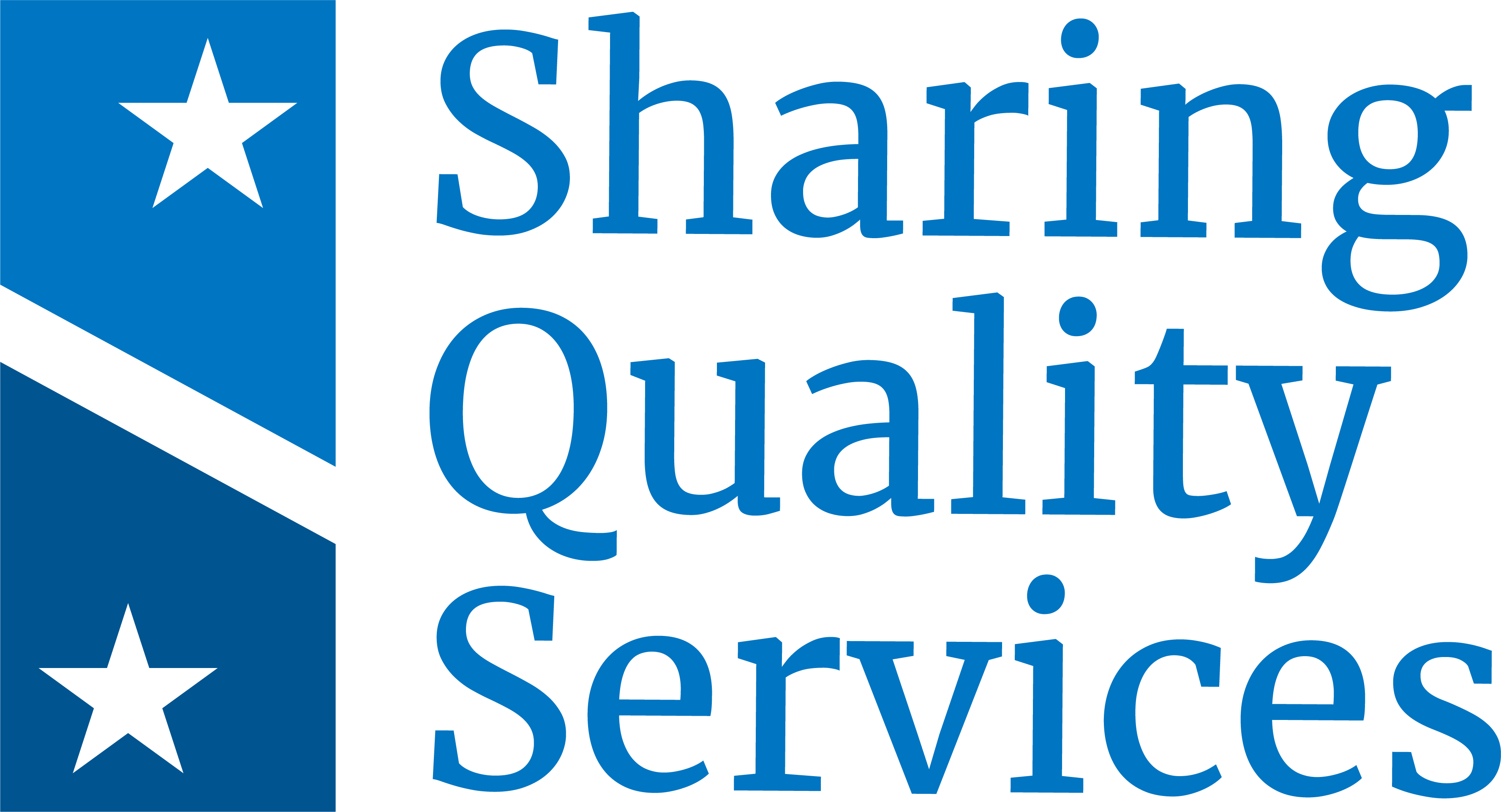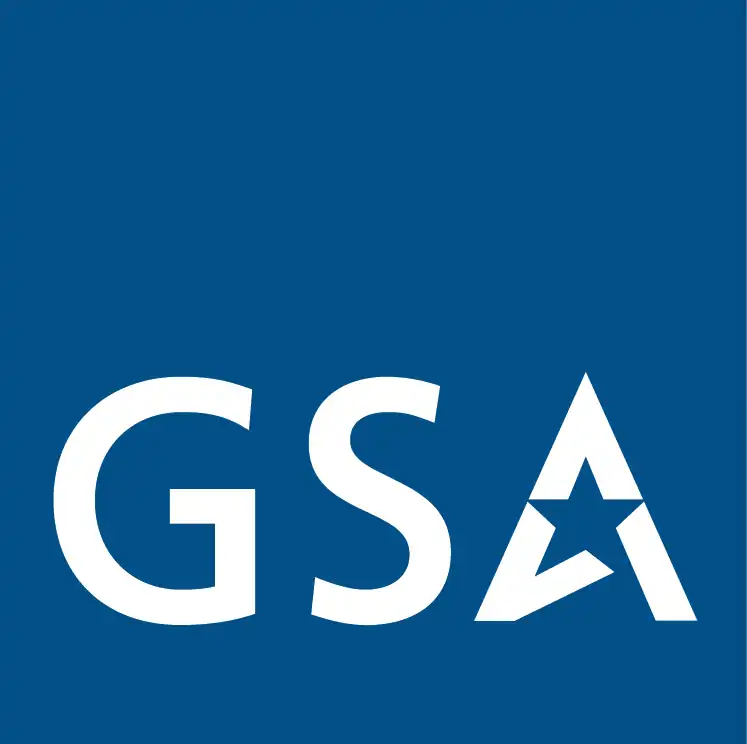Management Efficiency through Data and Business Standards
Data and Business Standards, aligned to policy and continuously updated, enable the federal government to better coordinate on common agency management and operations capabilities. These standards, agreed to by agencies, are a first step toward achieving the outcomes, data, and common technologies needed to drive economies of scale and leverage the government’s buying power.

Federal Integrated Business Framework
The Federal Integrated Business Framework (FIBF) includes five components:
- Federal Business Lifecycles are comprised of functions and activities that are the basis for understanding the services agencies need and the management solutions that should be offered.
- Business Capabilities are the outcome-based business needs mapped to Federal government authoritative references, forms, inputs, outputs, and data standards.
- Business Use Cases are agency “stories” that document key activities, inputs, outputs, and cross-functional intersections to describe how the Federal government operates.
- Standard Data Elements identify the minimum business fields required to support the data inputs and outputs of the agency management operations lifecycle.
- Service Measures define how the government measures successful delivery of outcomes based on timeliness, efficiency, and accuracy targets.
Business Standards Progress
The Business Standards Progress Dashboard shows the current state of agency agreement on government-wide Mission Support Business Standards. Click on the functional area or checkmarks to navigate directly to the latest baseline functions / activities, capabilities, use cases, standard data elements, and Service Measures.
| Functional Area | Designated Standards Lead |
FIBF Component | |||||||||
| Federal Business Lifecycle | Business Capabilities | Business Use Cases | Standard Data Elements | Service Measures | |||||||
| Real Property Management | GSA | ||||||||||
| Electronic Records Management | NARA | ||||||||||
| Travel | GSA | ||||||||||
| Core Financial Management | Treasury | ||||||||||
| Grants Management | HHS | ||||||||||
| Contract Writing | DHS | ||||||||||
| Cybersecurity Services | |||||||||||
| Security Operations Center | DHS | ||||||||||
| Vulnerability Disclosure Program | DHS | ||||||||||
| Human Resources | |||||||||||
| Talent Acquisition |
OPM | ||||||||||
| Compensation and Benefits | OPM | ||||||||||
| Talent Development | OPM | ||||||||||
| Employee Performance Management | OPM | ||||||||||
| Separation & Retirement | OPM | ||||||||||
| Regulation Management | GSA | ||||||||||
| Freedom of Information Act (FOIA) Services | DOJ | ||||||||||
| Mail Operations Management | GSA | ||||||||||
| Equal Employment Opportunity | EEOC | ||||||||||
| = Baseline | |||||
| Standards Lead | Cross-Agency Working Group |
Business Standards Council (BSC) / Public Review |
Review Feedback | OMB | Standards Complete |
Enhance your agency's services by utilizing the FIBF
How are the Business Standards Used?
-
Translates Policy into Practice
The business standards enable the Federal Government to better coordinate and document common business needs based on authoritative policy across agencies, focusing on outcomes, capabilities, and data. -
Procurement
Agencies can use the business standards to buy mission support services. The business standards are a starting point for agencies’ requirements and allow industry to offer innovative solutions based on the business standards. -
Agency Investment Review
The business standards ensure agencies will be able to easily transition to a future solution offered in the QSMO marketplace. When agencies plan to use solutions from outside of the QSMO marketplace, the Investment Action Planning process leverages the business standards as a means to evaluate agency options. -
Assess Readiness for Modernization
They support strategic planning to improve mission support services by giving decision makers the data needed to identify future opportunity areas for these services. This includes identifying opportunities for modernization based on common themes, and policy reform based on agency feedback. -
Agreement Across Mission Support Functions
The business standards help obtain government-wide consensus on what business processes belong in each mission support functions to establish a shared understanding of the scope of services and coordination needed across shared services.


